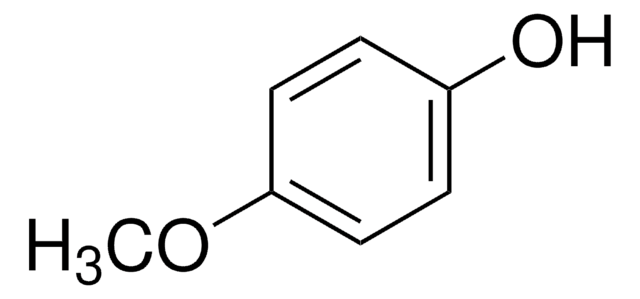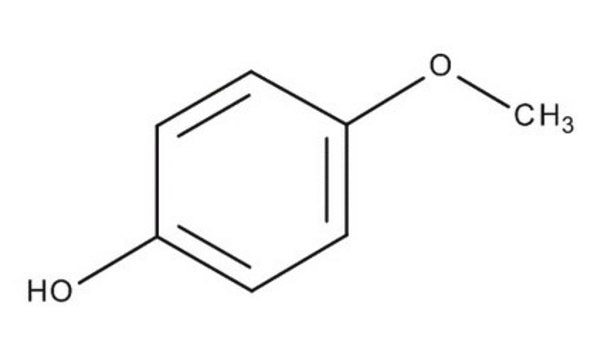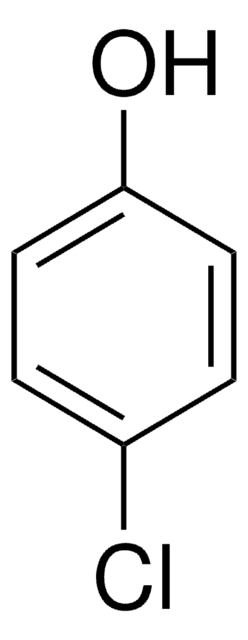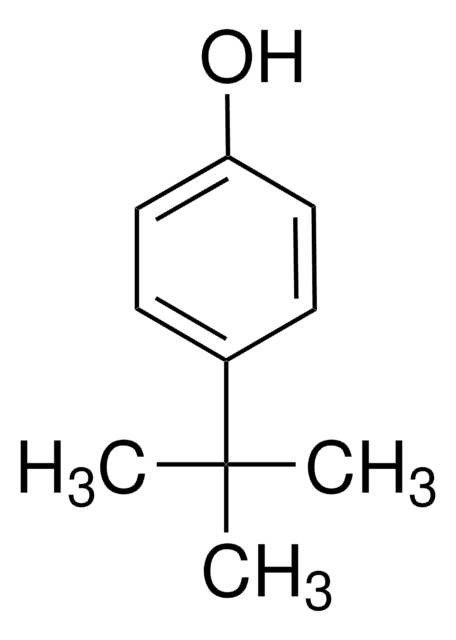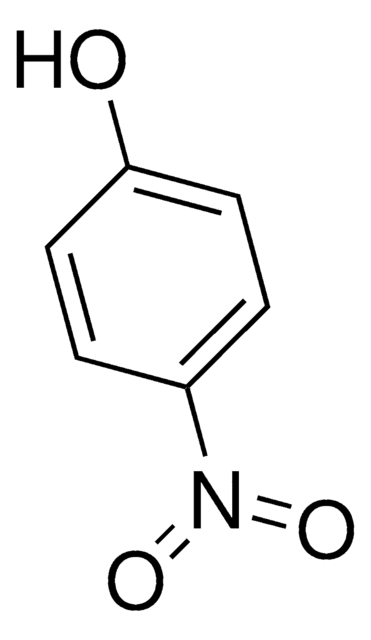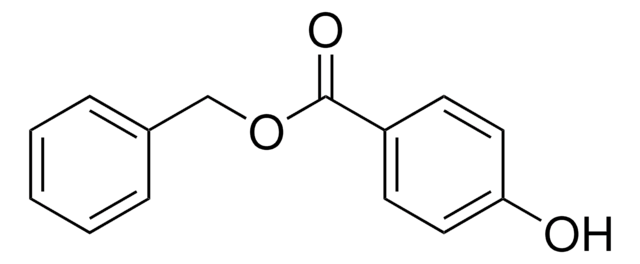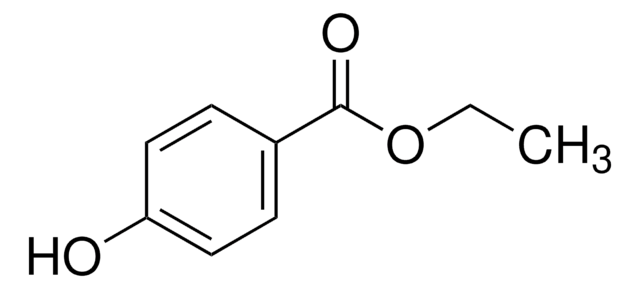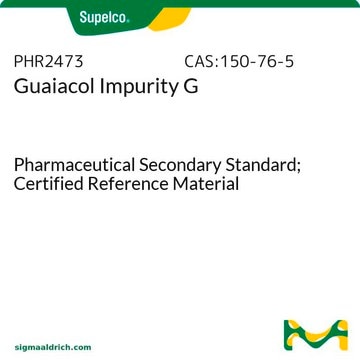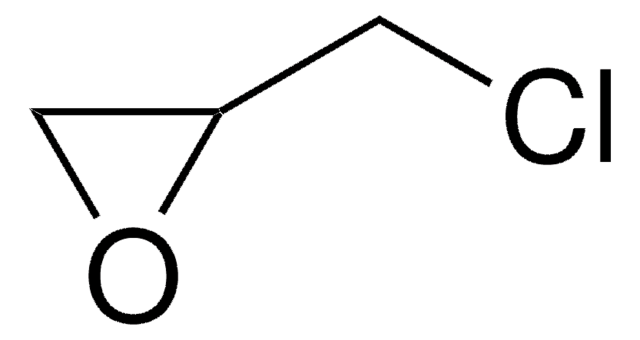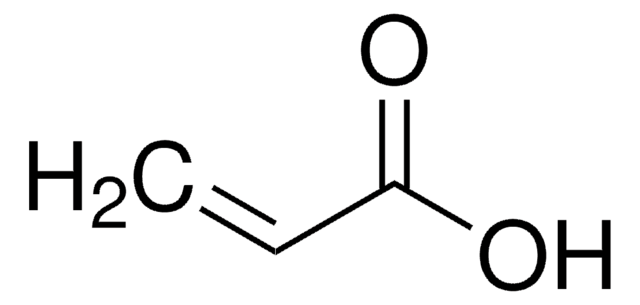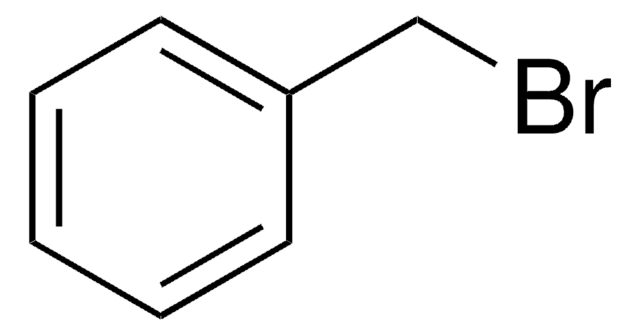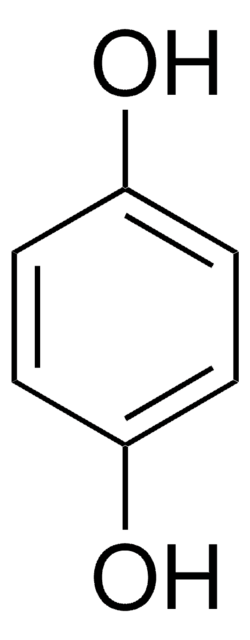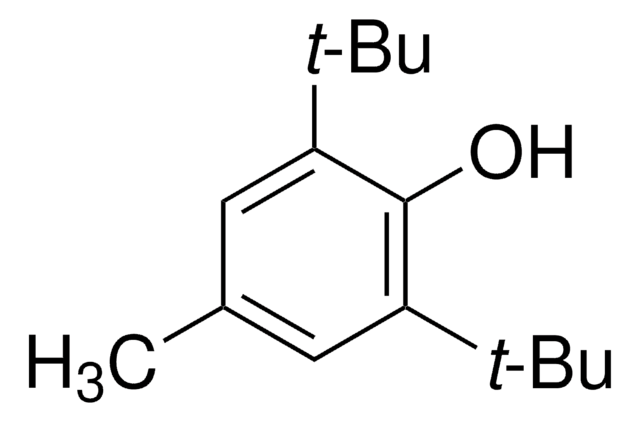92264
4-Methoxyphenol
analytical standard
Synonym(s):
4-Hydroxyanisole, 4-MP, HQMME, Hydroquinone monomethyl ether, MEHQ, p-Guaiacol
About This Item
Recommended Products
grade
analytical standard
Quality Level
vapor density
4.3 (vs air)
vapor pressure
<0.01 mmHg ( 20 °C)
assay
≥98.5% (GC)
autoignition temp.
789 °F
shelf life
limited shelf life, expiry date on the label
technique(s)
HPLC: suitable
gas chromatography (GC): suitable
impurities
≤0.5% water
bp
243 °C (lit.)
mp
55-57 °C (lit.)
application(s)
cleaning products
cosmetics
environmental
flavors and fragrances
food and beverages
personal care
format
neat
SMILES string
COc1ccc(O)cc1
InChI
1S/C7H8O2/c1-9-7-4-2-6(8)3-5-7/h2-5,8H,1H3
InChI key
NWVVVBRKAWDGAB-UHFFFAOYSA-N
Gene Information
human ... TYR(7299)
Looking for similar products? Visit Product Comparison Guide
Related Categories
General description
Application
signalword
Warning
hcodes
Hazard Classifications
Acute Tox. 4 Oral - Aquatic Chronic 3 - Eye Irrit. 2 - Skin Sens. 1
wgk_germany
WGK 1
flash_point_f
Not applicable
flash_point_c
Not applicable
Choose from one of the most recent versions:
Certificates of Analysis (COA)
Sorry, we don't have COAs for this product available online at this time.
If you need assistance, please contact Customer Support.
Already Own This Product?
Find documentation for the products that you have recently purchased in the Document Library.
Customers Also Viewed
Our team of scientists has experience in all areas of research including Life Science, Material Science, Chemical Synthesis, Chromatography, Analytical and many others.
Contact Technical Service